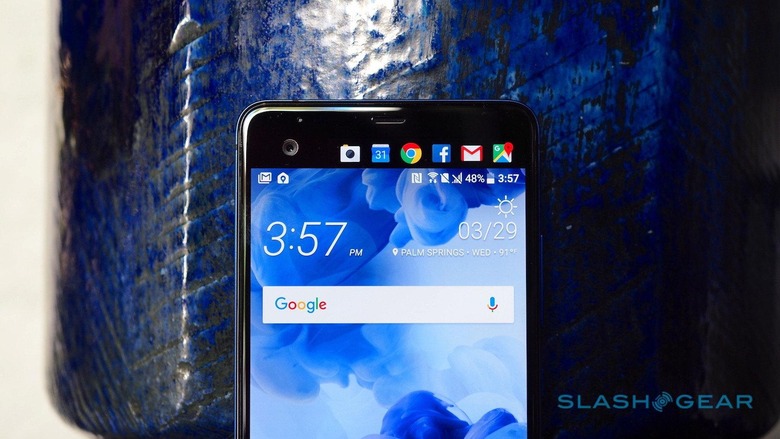LG V30 Might Lose Its Only Defining Feature, But That's OK
Like it's rival Samsung, LG has been releasing two premium smartphones per year. In the distant past, the two were mostly distinguished by their size. But ever since the LG V10 in 2015, the two flagships' differentiating factors practically boiled down to removable batteries and, perhaps more importantly, a second screen on top. According to sources, as well as previous leaks, LG will be ditching both of those with the V30. Depending on how attached you were to that second screen, that might not be much of a deal breaker in the end.
While fancy and convenient at times, the Second Screen really felt more like an artificially tacked on feature than a well thought out solution to a problem. Even Samsung, who arguably was first to put such a second screen in the Galaxy Note Edge, eventually ditched the idea. And while HTC amusingly adopted it in the HTC U Ultra shown below, that smartphone might be the only phone this year with that feature.

The second screen gave users a very small area separate from the main screen that can always be on, offering shortcuts and notifications without having to wake up the larger and more power-intensive display. Its implementation here is practically defined by the limitations of LCD panels that can't selectively turn only some pixels on while the rest remains off.
The second screen is definitely helpful, for the times you remember it's actually there. Because it exists apart from the main screen, it also operates and behaves differently. You actually have to switch mental models when dealing with the second screen. It isn't exactly habit forming and you have to explicitly remember that it's there. In most case, you're more likely to instinctively unlock your phone and navigate to the app launcher, which mostly defeats the second screen's purpose.
All might not be lost however, and the second screen's future might be tied to the LG V30's one and only screen. Those same sources claim that LG will be using an OLED panel instead of an LCD and will be using that same 18:9 aspect ratio from the LG G6. While that does mean there'll no longer be room for a separate second screen, the use of OLED could mean that LG can finally implement an always on feature for the V30, removing one of the primary reasons why a second screen exists in the first place.

Perhaps a bigger disappointment would be the removal of a removable battery. LG has previously been proud of how it managed to stay in the good graces of its users by keeping this feature intact. Perhaps it was inevitable, especially with LG rumored to be implementing wireless charging.
With no second screen, a non-removable battery, a Qualcomm Snapdragon 835, 4 GB of RAM, and 64 GB of storage, the LG V30 might turn out to be disappointing for those expecting the V series to remain at the frontlines of daring innovation and features. With nothing but a higher processor and bigger screen to differentiate it, LG might as well call it the LG G6 Plus. Except, it's already using that for a different phone.
VIA: XDA
